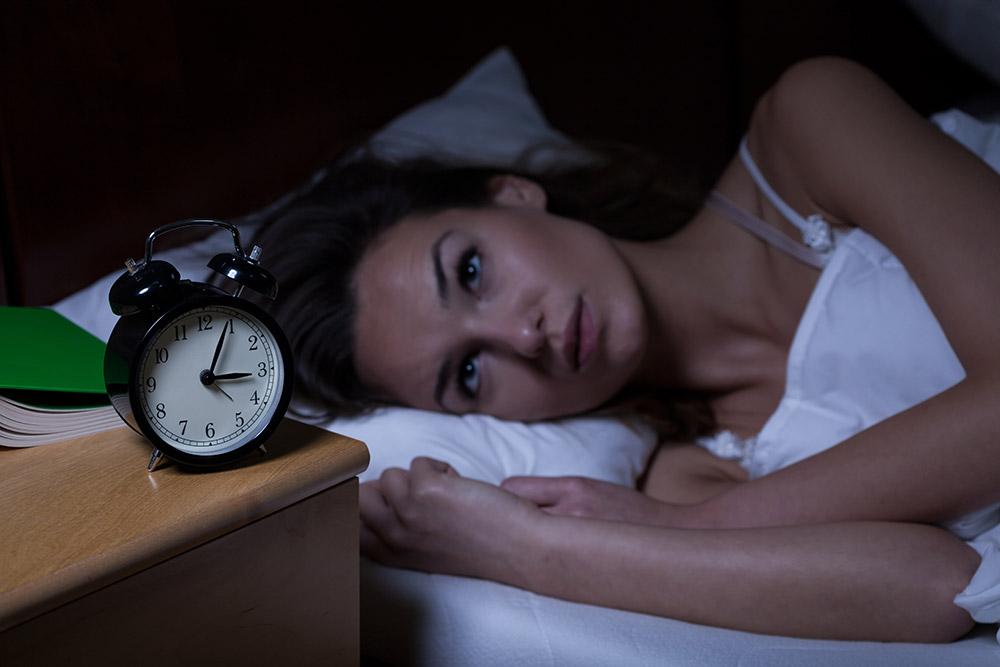It is common knowledge that sleep can affect your mental health. Anxiety, depression and financial worries can all negatively impact the quality of your sleep. In this blog post, we are going to explore how stress affects sleep in more detail, as well as what you can do if you are overly stressed or anxious about money.
What does stress do to our sleep patterns?
Anxiety can set off a stress response in the body, one that can lead to sleep disturbances. In turn anxiety and depression are closely linked as being major causes of insomnia - either sleeping too much or not enough. The more stressed you are, usually the worse your sleep quality will be because it is harder for your brain to shut down.
As a result, anxiety can be linked to worsening depression and your general mood. Financial worries in particular have been shown to affect sleep quality with people experiencing less time spent in the deepest stage of sleep.
How can I make sure I get good rest if my financial situation is stressful?
First off it's important that you exercise regularly as it can help with stress. You should also make sure to get enough sleep and avoid caffeine in the afternoon or evening as it can worsen feelings of anxiety which will inhibit your ability to sleep. Additionally, you can try to reduce your anxiety by practicing deep breathing. You may also want to consider seeing a therapist for help with reducing stress and getting good sleep as well. Finally, try going on a walk before bedtime. Studies have shown that this can reduce stressful thoughts by up to 66%.
What role does my mental illness play in the quality of my sleep?
Anxiety is one of the most common conditions linked to people not sleeping well. In fact, anxiety can cause many different sleep problems such as difficulty falling asleep or staying asleep. Depression is another condition that can affect your sleep - people with depression often have trouble sleeping because they may wake up throughout the night and worry about things during the day.
If you are experiencing these types of symptoms in addition to your mental illness then it's important to reach out for professional help.
Mental illness can have a significant impact on the quality of your sleep and it is important to take time to care for yourself and get good rest each night.
Simple breathing techniques for stress relief:
- Close your eyes and take a deep breath in through the nose.
- Hold it for a moment while counting to five, and then release.
- Repeat this process two or three times before opening your eyes again.
The first step is recognizing that you are experiencing stress related issues with sleep, which can lead to other complications such as anxiety, depression or financial issues.
This can be an important first step in getting professional help to manage your mental illness with sleep and improving the quality of your rest.
How to handle financial issues so you can sleep better?
There are many ways you can take a break from your financial worries. One way is to create an emergency savings fund, so that when tough times do come up there will be some money set aside for the future.
Financial issues can affect sleep and anxiety levels if not handled properly. With proper management of this stressor it doesn't have to take control of your life including your rest time.
Mental Illness Affects Sleep:
With a diagnosis of mental illness comes greater challenges when it comes to stress management and many people are unaware that this is part of the problem.
If you're struggling with a mental illness but not getting quality sleep, there are many treatments available to help.
- Talk with your doctor about what can be done to find relief from depression and anxiety that's keeping you up at night.
Talk therapy is one example of treatment for those who have been diagnosed with depression or anxiety.
- There are also medications and biological treatments that can help you feel your best and get a good night's sleep without the risk of relapse in clinical depression, for example.
If these solutions sound appealing to you but may be too expensive, there is insurance coverage available for mental health services as well (talk with your provider about your options.)
Ways to reduce stress from anxiety and depression at home:
- Relaxing activities such as yoga, meditation, or deep breathing can help. A hot shower may also be a good option for some people
- Create an environment that is conducive to sleep and relaxation by avoiding bright lights and noisy distractions before bedtime
- Keep the bedroom cool with temperature set between 60°F - 68°F
-Turn off all electronics one hour before your desired bed time.
- Reward yourself with a healthy treat after your evening routine is complete
-Don't compare yourself to others - you do not need to be perfect.
Is quality better than quantity when it comes to sleep?
Many people discuss the amount of sleep that you should be getting, but it is also vital to get quality sleep and go through the natural sleep cycles while you are asleep. If you are waking up all night long you may want to consult with your doctor on if a treatment plan is right for you.
It is highly recommended to get at least seven hours of sleep a night
Get 15 minutes of physical activity in the morning. This can help promote better quality and amount of restful sleep later on during the evening
Talk with your provider about your options: See what they recommend for you or what they think would be best, talk with your provider about what is best for you.
It may be recommended to see a therapist or sleep specialist if the insomnia persists and it can help you get back on track with getting quality rest.
It's important that people pay attention to their mental health, but we also need to make sure we take care of our physical well being as well.
Lastly, don't lose hope. There are many different treatments and different options available today to help you get better rest. It isn't a one size fits all scenario and there might need to be adjustments made to different treatments in the beginning until something is found that works for you.






















